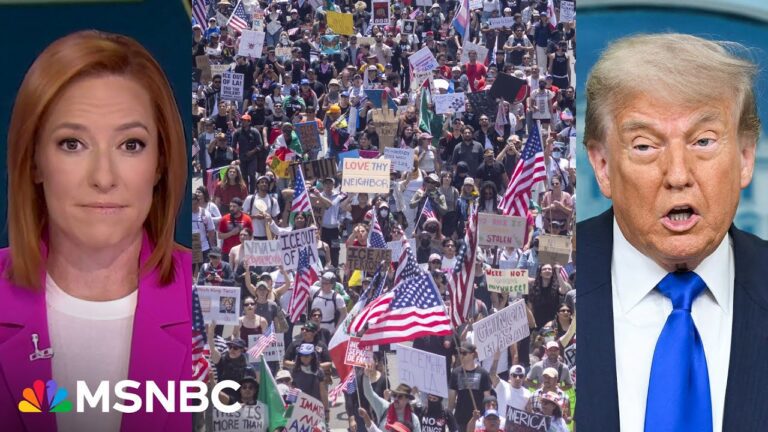Video at the bottom!
In a recent segment, the discussion centers on the implications of a significant Supreme Court ruling regarding executive power under Donald Trump’s administration. The host emphasizes the stark reality of Trump’s policies, highlighting consistent public disapproval on a range of issues, including immigration and economic policies. Despite this unpopularity, the host points out Trump’s reliance on executive orders to bypass Congress, which could suggest a disregard for traditional governance and coalition-building.
The conversation shifts to the Supreme Court’s recent decision that curtails the ability of lower courts to implement nationwide injunctions against Trump’s executive actions, specifically addressing a controversial order that sought to eliminate birthright citizenship. This decision indicates a shift away from the checks that the judicial branch previously exerted over executive power.
Justice Sonia Sotomayor voices concern about the implications of this ruling, asserting that it creates a dangerous new legal framework where the executive branch may operate with relative impunity, threatening core democratic principles. Similarly, Justice Ketanji Brown Jackson stresses that a functional legal system requires accountability from all branches of government, warning against establishing zones of lawlessness where executive whims reign.
Despite the ruling’s limitations on judicial power, there remains a possibility for collective legal actions to counter Trump’s policies. The host conveys hope that grassroots organizing can mobilize individuals impacted by these policies, potentially allowing for effective legal challenges. The discussion culminates with the assertion that the fight against Trump’s administration in the courts may intertwine with broader grassroots movements, suggesting a vigilant and active public response will be essential moving forward.


